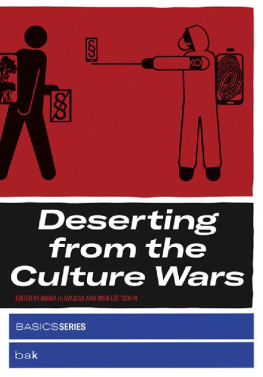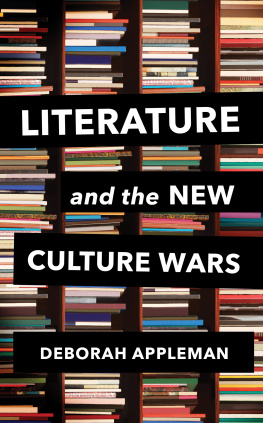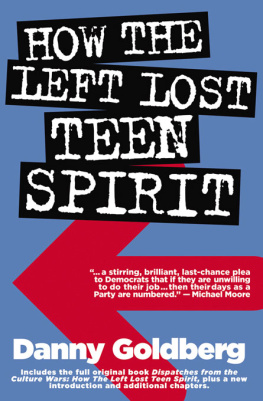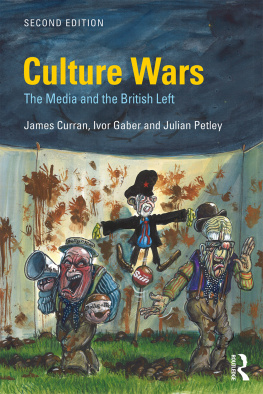DESERTING FROM THE CULTURE WARS
Editors: Maria Hlavajova and Sven Ltticken
Associate Editor: Wietske Maas
Managing Editor: Irene Calabuch Mirn
Copyediting: Colin Beckett
Proofreading: Mairead Case, Wietske Maas, Angelica Sgouros, and Aidan Wall
Design: Sean van den Steenhoven for LeftLoft
Cover features an image by Andreas Siekmann from the series The Big 4ever, 2020, developed for this publication.
2020 BAK, basis voor actuele kunst, Utrecht
The materials in this book are licensed under a Creative Commons Attribution-NonCommercial-NoDerivative 4.0 International license, with exceptions noted where applicable.
.
This book was set in GT America and Minion Pro.
Distributed by:
The MIT Press
Massachusetts Institute of Technology
Cambridge, MA 02142
Library of Congress Control Number: 2020930210
ISBN: 978-0-262-53943-2
d_r0
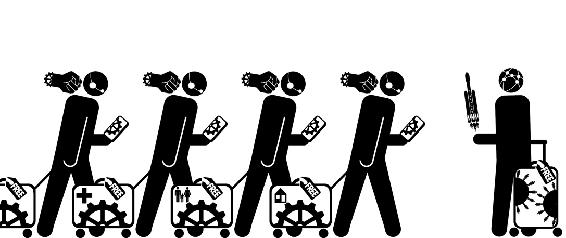
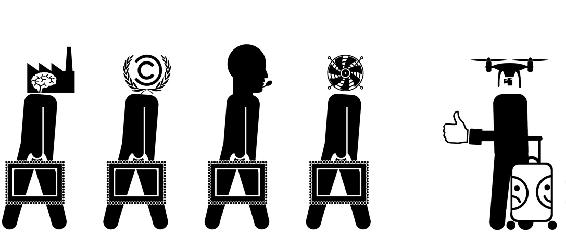
Table of Contents
Guide
Foreword
Maria Hlavajova
This publication brings together artists and other cultural practitioners to intervene in the contemporary condition shaped by the culture wars. The culture wars have been omnipresent for decades, but in the twenty-first century they have assumed a renewed prominence and a polarizing efficacy as a conduit for the gradual normalization of an emerging far-right authoritarian world order. As a significant portion of the globe slides into reaction, battles around civil rights, social and ecological justice, health equity, racial hierarchies, gender identities, and, to be sure, truth flood public discourse with a toxic brew of bewildering language, maximalist slogans, manipulative rhetoric, inflammatory imagery, conspiracy theories, and militarized posturing.
Such a politically orchestrated photo op stunt is a quintessential culture wars trope, here overlaid with the intimidating sounds of military helicopters; itself both a tactical response to on-the-ground events and a textbook prop of sickening theatrical swagger. Here too, the culture war dynamic gives the vocabulary of domination and overwhelming force, drawn from the language of counterinsurgency, a performative hold on reality. This footage captures the global imagination so forcefully not just for its blatant cruelty, but also because it issues from a nation that, under the aegis of democracy and self-usurped global leadership, has been selling white supremacy as universal freedom. But countless similar scenes go unnoticed elsewhere in the world, as we are forced to brace for the next culture wars skirmish to violently spill out from the online space into the streets. Or into an LGBTQ+ club anywhere in the world. Or onto an island populated with kids in a summer camp. Or under a spray of bleach. Or by exhaustion from crossing vast lands to reach home in an unemployed misery. Or at a grocery store where a disgruntled shopper refuses to wear a facemask to protect others, and thus themself, from the coronavirus. In these conflagrations, the culture wars seamlessly entwine with other wars: class wars, civil wars, economic wars, and the active military hostilities. To be sure, culture is not some abstract and distant terrain. Rather, it is the ideological turf for all combat, and thus, to put it simply, where wars are won and lost.
seeking to circumvent the strictures of the state apparatus and engage in instituent practices insteadLtticken asks amid the conundrum of today's culture wars: What possibilities would be opened by a refusal to play these war games, and commit desertionnot as a withdrawal into a realm of apolitical privacy, but as a pursuit of different strategies, tactics, and coalitions?
For this publication, the gathering functioned as a public editorial assembly of sorts. It unraveled in real time as a set of tentative, yet tactile and concrete responses to the quandary of how to conceive of culture as a space of action that is emancipatory, embodied, intersubjective, and driven by demands for social and ecological justice. Here we can see culture as a collective performance and a method of mutual, anticipatory learning that marks a space for the enactment of possibilities radically different from those implied by the hard right's conception of the field. Issuing from this process, this volume brings together texts that mobilize resistance and imagination, and propose ways to embody a non-fascist life. These are the political and ethical commitments that drive BAK as a base for thinking and imaginingand intervening by living these alternative imaginings as if they were possible.
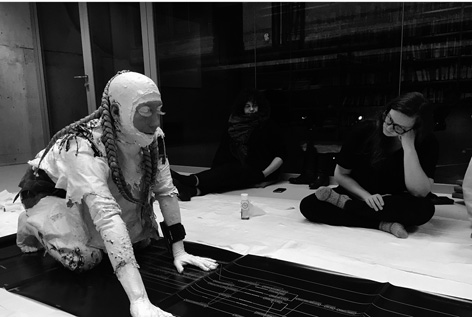
Reprocommunal Training Camp with Transformella Malor in the framework of Propositions #9: Deserting from the Culture Wars, BAK, basis voor actuele kunst, Utrecht, 13 November 2019, photo: Sven Ltticken
Back then, I could not have imagined how useful this knowledge would prove in the coming century to fight for the possibility of a livable life in common.
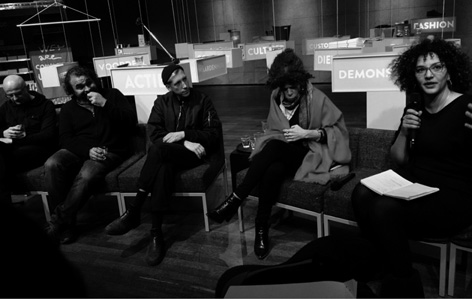
Panel Working in Groups, Acting in Networks during Propositions #9: Deserting from the Culture Wars, BAK, basis voor actuele kunst, Utrecht, 15 November 2019, photo: Sven Ltticken
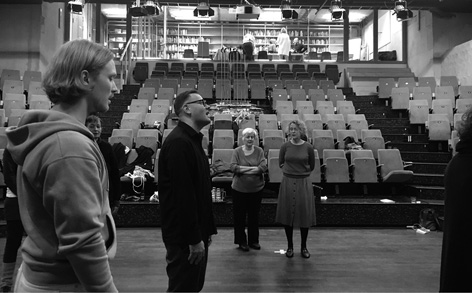
The Plague Training with Rose Hammer in the framework of Propositions #9: Deserting from the Culture Wars, BAK, basis voor actuele kunst, Utrecht, 14 November 2019, photo: Sven Ltticken
I would like to thank all the contributors to this publication for their in-depth analyses and propositions for how to organize ourselves in the face of today's cultural wars: Bini Adamczak, Kader Attia, Rose Hammer, Tom Holert, Geert Lovink, Sven Ltticken, Diana McCarty, Dan McQuillan, Johannes Paul Raether, Natascha Sadr Haghighian, Esmee Schoutens, Andreas Siekmann, and Jonas Staal. Equally, I want to thank all those who took part in the assembly Propositions #9: Deserting from the Culture Wars. Most notably, I thank artist Jeanne van Heeswijk from whom we have learned to embrace the notion of training in preparation for the yet to come. Crucially, I owe my appreciation and admiration to Sven Ltticken, who not only convened such a large collective conversation around the subject at hand, but who has always shared his unending reservoir of knowledge and imagination with BAK in comradely solidarity. I thank Wietske Maas, associate editor and Irene Calabuch Mirn, managing editor of this publication for their extraordinary and moving commitment to our shared work. My utmost gratitude goes to my colleagues at BAK, without whom none of what we humbly try to achieve would be imaginable. Last but not least, I thank the book's co-publisher The MIT Press, and Victoria Hindley in particular.
.The notion of instituting otherwise has been shaping the institutional practice of BAK from its very inception in 2000. Here, instituting otherwise is a continuous process and a method of engaging the urgencies of the present
alongside and
with the diverse, multi-talented, and poly-vocal constituencies of BAK. At the same time, instituting otherwise is a systematic move away from (art) institutions as they persist, specifically in the West and in ways redolent of the colonial era, as custodians of power geared at anesthetization and thus depoliticization and normalization of social, political, ecological, and economic injustices in the world.BAK's long-term research series
Next page
